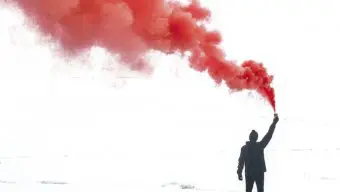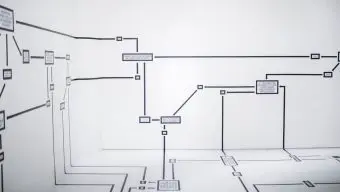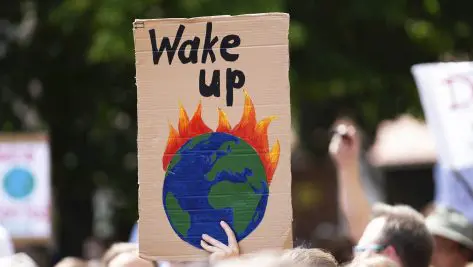Is Europe Ready to Stand Alone?
What does strategic autonomy mean for the future of Europe? Thierry Breton and Enrico Letta explore whether the EU is truly ready to stand alone in a rapidly changing global order.
© IE Insights.
Transcription
Enrico Letta
If we have in mind one point that is central, I think it’s the big challenge for Europe, for the European Union, to find a different place in the world, more independent, more autonomous. Strategic autonomy was a word in the European debate that was divisive some years ago. It was divisive on many aspects.
Some countries were more vocal in favor, others were more shy and stopping. But now it’s clear that with what is happening around Europe – the Russian aggression to Ukraine, Chinese competitiveness on industry, first of all what is happening with the US – that strategic autonomy for Europe is no more something divisive, but is absolutely a need. “I’m really good at this stuff. Your countries are going to hell.”
This is in my view the most important problem we are having today. How many people are around Europe sharing ideas, strategies, but at the same time having the sense of a lack of action? There is, in my view, something that is maybe the core of the problem we’re having: good in strategy, not so good in execution, in a moment in which execution is absolutely fundamental, key. Because the others are acting are implementing in a very fast way,
and without complex decision-making systems. That is not the case in Europe because of our complexities. And, of course, you were commissioner, but you were also in the private sector for many years. What do you think about it?
Thierry Breton
First, you’re absolutely right. Strategic autonomy 3 or 4 years ago had not the same signification that what we understand should be now. After the re-election of Donald Trump, with aggression in Ukraine. In the past it had a flavor, I should say, of protectionism, which was not the case. But it’s true that many countries saw this as protectionist.
Today, I think everyone understands that in today’s world we are alone. Europe is alone. We are on our own. We cannot count on anyone. I repeat, we cannot count on anyone to protect us. There is a huge change of paradigm. So now, as you said rightly so, everyone understand clearly the situation, how they have to change also: Estonia, Latvia, Lithuania. We can speak also about Finland, we can speak also of Poland, we can speak also of Bulgaria, Romania, but even Germany.
It’s true that all of these countries put themselves in the hands of the United States of America to protect themselves. And now I suppose everyone understands that we are entering into a new world where it won’t be the case anymore. So we have to take our destiny into our hands.
Now, you mentioned something which is important: execution. You said “because of our complexity”, if I may say, I don’t agree with you. We don’t have complexity. We are just what we are. We are a big democracy. We are what we are because of our history. And I think it’s important to keep also our differences. And it is embedded in the way we exercise our democracy.
We have the Parliament with many different political parties. We have our European Council, which is exactly the equivalent of the US Senate in terms of co-legislator, with our differences. We are not a federal state, of course. Is it more difficult to take decisions? Maybe, but this is what we are, in a situation to exercise a mandate.
It could be a political mandate, it could be a CEO to start to say “it’s difficult so I will change the bylaws”. When you do it, do it within the bylaws. And I realized that with leadership, with capacity of conviction, with energy, with vision, you can do it. There is a time to explain to our fellow citizens, to our 27 Member States the situation.
But believe me, they fully understand the world we are in now. They all understand. So now, of course, as you said, the time is for execution, time is for leadership, time is for leaders. But since we are a democracy, let’s ask our people to vote for the right leaders.
Enrico Letta
I had the feeling sometime that people are completely aware of the fact that in the world of today we need unified solutions. You were a protagonist of the one on vaccines, for instance. Today, when we have to say “hey people, it’s better together, look at the vaccine experience”. It was clear that without a common European leadership it would have been impossible to have a vaccine in nine months, one year.
I remember at the beginning of the Covid, the idea of all the experts was to say, okay, we need four-five years to have vaccines everywhere. And then because we had these European leaders who were able to be better because together. And the same is for the euro, for instance, I always remember, first of all, that your country France had a referendum on the euro: 51 in favor, 49 against.
My country Italy: many oppositions, the idea to leave our identity, the national currency, was so complicated. And today, in all our countries and in Germany, 80% of the people are telling us “hey, we are happy because of the euro”. I have the feeling sometimes that people are absolutely aware that there can be a coexistence between a national identity, but at the same time, in the big world of today, well, it is clear that you were able to have this ‘bras de fer’ also because you represented all European countries.
And being alone, it is more complicated. We have to keep national some topics because it is the way to control them better. There’s the trend to prefer to control weaker environments, but national and not European. And this problem of, I will say delegating, moving, passing competences from national level to European level because it’s the only way to have sovereignty.
You have sovereignty on many issues where sovereignty is shared at European level, otherwise it’s a fake sovereignty, because at the end of the day, you are in a form of sovereignty, but in reality everything is American, Chinese. Jacques Delors was the great architect of the European Union, the single market, because he was able to speak to the public opinion, telling public opinion, single market will give you this, this, this. A national government can put obstacles, but it is for your better life.
Starting from this experience of vaccines, what is the take away you bring in the present situation?
Thierry Breton
Again, we are not a federal state, but we are a continent and we are not a country. We have decided to have our own governance respecting again who we are and what we are. When you have a body like we do have in Brussels, we have three bodies, the European Commission, European Parliament, European Council, it’s absolutely normal that you have a discrepancy between this power and the one in member states.
When I was living in New Jersey, the Governor of New Jersey was very vocal against D.C., very vocal. I even understand that now vice-versa, the federal government because it’s not happy with one country may think to send the National Guard or the Army. So the difference between state, even in the U.S., and federal government, or member states and you European institutions is normal
Enrico. Take the example of the vaccines, of helping the ones who signed contract with us – in other words the big pharma companies – to increase drastically the capacity of production while securing the product 100 percent. So helping them in a few months to speed up the learning curve and to be able to deliver what was necessary to protect and save the lives of our fellow citizens, but also of 106 other countries outside of Europe.
Because we decided to send outside of Europe, half of our production. Everybody thought that we were too ambitious. But we had no choice. Every day we had thousands of people losing their lives. Everyone forgot their own little interest and move 100 percent with the energy towards this single objective. It’s probably important to spend some time to discuss what should be our vision, our goal.
The one in charge of executing the objective will get the support of all the stakeholders being the Member States, or being the MEP’s in the Parliament. Then you can execute it.
Enrico Letta
I take a final take away from your conclusions, that is the topic of the date. Because for instance, when you put the date for vaccines, that was decisive to get the result at the end.
And today we have this opportunity with this date, 2028, for the completion of the single market that was in the SOTEU. And there’s today one date, and so we can if we want to try to put all the different engagements having in mind that this date can mobilize energies. Thank you very much, we wait for you in the future. Thank you very much.
Thierry Breton
Thank you very much Enrico.










